The Shaw Prize is an international prize that presents three annual awards, namely the Prize in Astronomy, the Prize in Life Science and Medicine, and the Prize in Mathematical Sciences, beginning from 2004. Each prize carries a monetary award, which has been set at of one million two hundred thousand US dollars since 2016.
ERC grantees Shaw laureates
Eva Nogales
.png)
She won the Shaw prize in Life Science & Medicine in 2023 for pioneering structural biology that enabled visualisation, at the level of individual atoms, of the protein machines responsible for gene transcription, one of life’s fundamental processes.
- Read bio Eva Nogales
-
Eva Nogales is a Spanish-American biophysicist, born in Colmenar Viejo, Spain. She is a distinguished professor of Molecular and Cell Biology at the University of California, Berkeley, and is affiliated with the Lawrence Berkeley National Laboratory. She won the Shaw prize in Life Science & Medicine in 2023 for her pioneering work on the visualisation, at the level of individual atoms, of the protein machines responsible for gene transcription, one of life’s fundamental processes.
Nogales earned her B.S. in Physics from the Universidad Autónoma de Madrid, and her PhD in Biophysics from the University of Keele while working at the Synchrotron Radiation Source under the supervision of Joan Bordas. She carried her postdoctoral studies with Ken Downing at the Lawrence Berkeley National lab. She joined the UC Berkeley MCB department in 1998. Since 2000 is a Howard Hughes Medical Institute investigator.
Nogales is a pioneer in use of electron microscopy for the structural characterization of large eukaryotic macromolecular complexes to gain insights into their function and regulation. She used electron crystallography to obtain the first structure of tubulin, identifying the binding site of the important anti-cancer drug taxol, and defined the conformational changes with nucleotide state in the microtubule that give rise to dynamic instability. Nogales was also the first to describe the assembly and structure of the human transcription preinitiation complex (PIC) and show how the large TFIID complex uses dramatic conformational changes to load TBP onto core promoter DNA to initiate PIC assembly only at the start site. Her work has uncovered aspects of cellular function that are relevant to the treatment of cancer and other diseases.
Patrick Cramer
.png)
He won the Shaw prize in Life Science & Medicine in 2023 for pioneering structural biology that enabled visualisation, at the level of individual atoms, of the protein machines responsible for gene transcription, one of life’s fundamental processes.
- Read bio Patrick Cramer
-
Patrick Cramer, born 3 February 1969 in Stuttgart, West Germany, is a German chemist, structural biologist, and molecular systems biologist.
In 2020, he was honoured to be an international member of the National Academy of Sciences. He became president of the Max Planck Society in June 2023.
Cramer obtained his PhD in natural sciences from the University of Heidelberg in 1998, then worked as postdoctoral researcher and fellow of the German Research Foundation (DFG) in the laboratory of the later Nobel Prize laureate Roger D. Kornberg at Stanford University, USA. In 2001 he returned to Germany, where he obtained a tenure-track professorship for biochemistry at the Gene Center of the University of Munich (Ludwig Maximilians University, LMU where he was later, in 2004, appointed full professor of biochemistry. Cramer headed the Gene Center of the University of Munich for 10 years,[4] from 2004 until 2013. He also served as Dean of the School of Chemistry and Pharmacy from 2007 to 2009, and as Director of the Department of Biochemistry from 2010 to 2013. Cramer also was a member of the University Research Board from 2007 to 2013 and speaker of the research network grant SFB464 of the German Research Council (DFG). On 1 January 2014 Patrick Cramer was appointed Director at the Max Planck Institute for Biophysical Chemistry in Göttingen, Germany. From 2016 to 2022 he was a member of the Editorial Board for Cell. From 22 June 2023, he has served as president of the Max Planck Society.
Noga Alon

He won the Shaw prize in Mathematical Science in 2022 for remarkable contributions to discrete mathematics and model theory with interaction notably with algebraic geometry, topology and computer sciences.
- Read bio Noga Alon
-
Noga Alon, born 1956 in Haifa, is an Israeli mathematician and a professor of mathematics at Princeton University noted for his contributions to combinatorics and theoretical computer science, having authored hundreds of papers.
Alon received his Ph.D. in Mathematics at the Hebrew University of Jerusalem in 1983 with the dissertation Extremal Problems in Combinatorics supervised by Micha Perles.After postdoctoral research at the Massachusetts Institute of Technology he returned to Tel Aviv University as a senior lecturer in 1985, obtained a permanent position as an associate professor there in 1986, and was promoted to full professor in 1988. He was head of the School of Mathematical Science from 1999 to 2001, and was given the Florence and Ted Baumritter Combinatorics and Computer Science Chair, before retiring as professor emeritus and moving to Princeton University in 2018. He was editor-in-chief of the journal Random Structures and Algorithms beginning in 2008.
Ehud Hrushovski
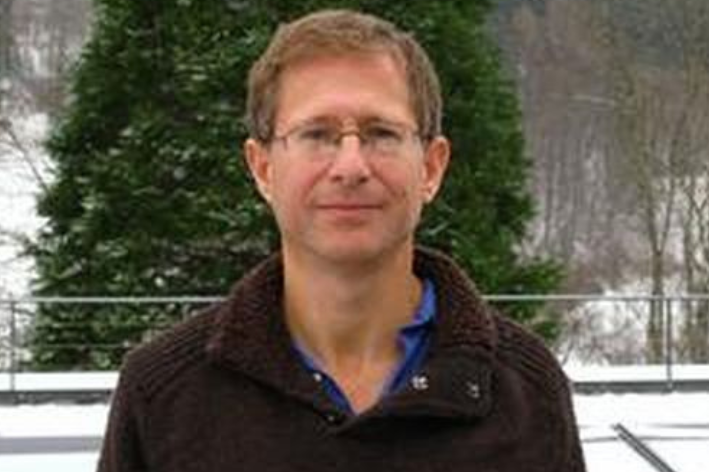
He won the Shaw prize in Mathematical Science in 2022 for remarkable contributions to discrete mathematics and model theory with interaction notably with algebraic geometry, topology and computer sciences.
- Read bio Ehud Hrushovski
-
Ehud Hrushovski, born 30 September 1959, is a mathematical logician, well known for several fundamental contributions to model theory, in particular in the branch that has become known as geometric model theory, and its applications.
Hrushovski earned his PhD from the University of California, Berkeley in 1986 under Leo Harrington; his dissertation was titled Contributions to Stable Model Theory. He was a professor of mathematics at the Massachusetts Institute of Technology until 1994, when he became a professor at the Hebrew University of Jerusalem. Hrushovski moved in 2017 to the University of Oxford, where he is the Merton Professor of Mathematical Logic.
Jean-Michel Bismut
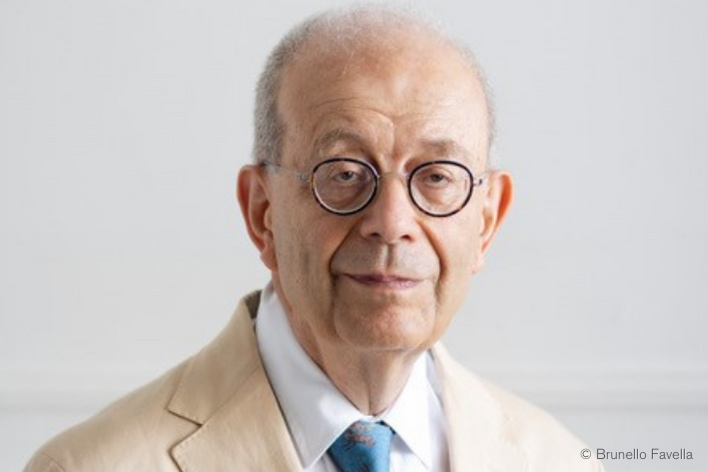
He won the Shaw prize in Mathematical Sciences in 2021 for remarkable insights that have transformed, and continue to transform, modern geometry.
- Read bio Jean-Michel Bismut
-
Jean-Michel Bismut, born 26 February 1948, is a French mathematician who has been a professor at the Université Paris-Sud (now Université Paris-Saclay) since 1981. His mathematical career covers two apparently different branches of mathematics: probability theory and differential geometry. Ideas from probability play an important role in his works on geometry.
Bismut received his Doctorat d'État in Mathematics in 1973 from Université Paris-VI. Since 1984, Bismut works on differential geometry. In 1986, he was an invited speaker in the Geometry section at the ICM in Berkeley, and in 1998 he was a plenary speaker at the ICM in Berlin. He was a member of the Fields Medal Committee for ICM 1990. From 1999 until 2006, a member of the executive committee (from 2003 until 2006 as vice-president), International Mathematical Union (IMU). He was an editor of Inventiones Mathematicae from 1989 until 1996 and (together with Gerd Faltings) a managing editor from 1996 until 2008.
Gero Miesenböck
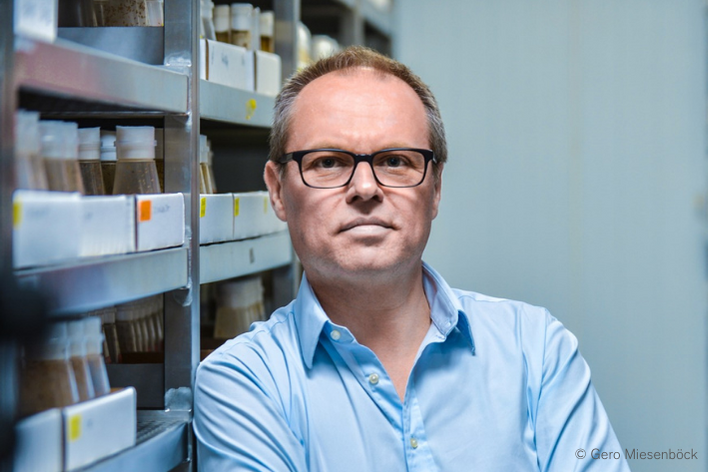
He won the Shaw prize in Life Science & Medicine in 2020 for the development of optogenetics, a technology that has revolutionized neuroscience.
- Read bio Gero Miesenböck
-
Gero Miesenböck, born on 15 July 1965 in Austria, is Waynflete Professor of Physiology and founding Director of the Centre for Neural Circuits and Behaviour at the University of Oxford. Before coming to Oxford in 2007, he held faculty appointments at Memorial Sloan-Kettering Cancer Center and Yale University. In addition to the Shaw Prize, Miesenböck has received many awards for the invention of optogenetics, including the Brain Prize, the Louisa Gross Horwitz Prize, and the Japan Prize. He is a member of the Austrian and German Academies of Sciences and a Fellow of the Royal Society.
The centre of Miesenböck’s current research is the neuronal control and biological function of sleep. He discovered a mechanism that gears the action potential discharge of sleep-promoting neurons to mitochondrial respiration, suggesting that sleep, like ageing, is an inevitable consequence of aerobic metabolism.
Peter Hegemann
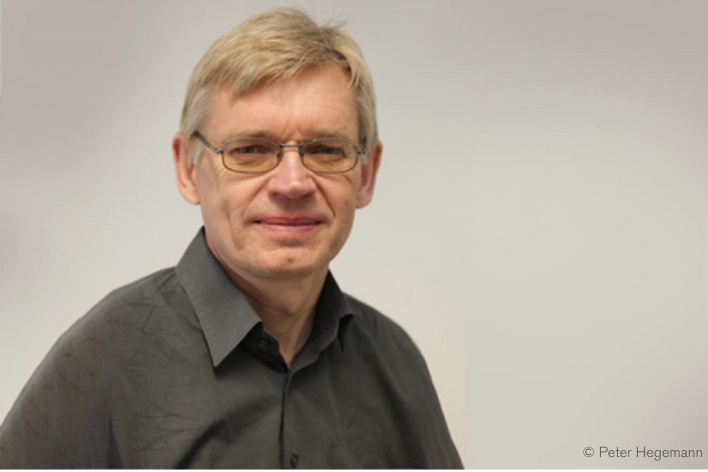
- Read bio Peter Hegemann
-
He won the Shaw prize in Life Science & Medicine in 2020 for the development of optogenetics, a technology that has revolutionized neuroscience.
Simon D M White
.png)
He won the Shaw prize in Astronomy in 2017 for his contributions to understanding structure formation in the Universe.
- Read bio Simon D M White
-
Simon D.M. White, born 30 September 1951, is a British-German astrophysicist. He was director at the Max Planck Institute for Astrophysics from 1994 until his retirement in late 2019.
White obtained his doctorate in Astronomy in 1976 at the University of Cambridge. Entitled "The Clustering of Galaxies", it was supervised by Donald Lynden-Bell. Postdoc positions at the University of California, Berkeley, the University of Cambridge, the Institute for Advanced Study and the Institut d'Astrophysique de Paris were followed by faculty positions at the University of Arizona and the University of Cambridge. White moved to Germany in 1994 when he was appointed as a Scientific Member of the Max Planck Society and an honorary professor at the Ludwig-Maximilians University of Munich (1994).
White has been elected to the Royal Society of London (1996), to the German National Academy, Leopoldina (2005), to the United States National Academy of Sciences (2007), to the Academia Europeae (2009) and to the Chinese Academy of Sciences (2015). Among other honours, he was awarded the Gold Medal of the Royal Astronomical Society in 2005 and an honorary doctorate from Durham University in 2007 He shared the 2011 Gruber Cosmology Prize for his work in establishing the Cold Dark Matter paradigm for cosmic structure formation, and he was award the 2017 Shaw Prize in Astronomy for his contributions to understanding structure formation in the Universe. In 2020 he was named a Clarivate Citation Laureate in Physics.
Adrian P Bird
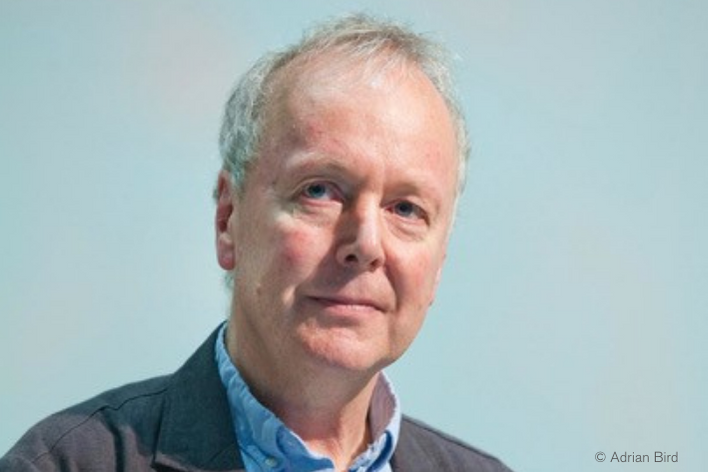
He won the Shaw prize in Life Science & Medicine in 2016 for the discovery of the genes and the encoded proteins that recognize one chemical modification of the DNA of chromosomes that influences gene control as the basis of the developmental disorder Rett syndrome.
- Read bio Adrian P Bird
-
Adrian Peter Bird, born 3 July 1947, is Buchanan Professor of Genetics at the University of Edinburgh. Bird has spent much of his academic career in Edinburgh, from receiving his PhD in 1970 to working at the MRC Mammalian Genome Unit and later serving as director of the Wellcome Trust Centre for Cell Biology. His research focuses on understanding DNA methylation and CpG islands, and their role in diseases such as Rett syndrome.
Bird’s PhD, supervised by Max Birnstiel, was followed by postdoctoral research positions at Yale University with Joseph G. Gall, and then at the University of Zurich, returning to Edinburgh in 1975 to work at the MRC Mammalian Genome Unit. From 1987 to 1990 Bird continued his research at the Research Institute of Molecular Pathology in Vienna. In 1990, he became Buchanan Professor of Genetics at the University of Edinburgh, where he helped create the Wellcome Trust Centre for Cell Biology and served as its director from 1999 until 2011. From 2000 to 2010, he was a governor of the Wellcome Trust and subsequently a trustee of Cancer Research UK from 2010-2016. Board memberships include the Francis Crick Institute and the Rett Syndrome Research Trust. Among awards for his work on DNA methylation and Rett syndrome are the Louis Jeantet Prize 1999, the Gairdner Award 2011, the Shaw prize 2016 and the Brain Prize 2020.
Demetrios Christodoulou
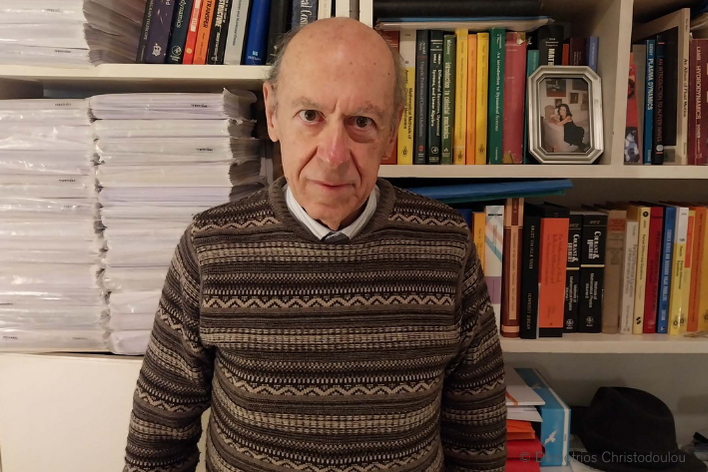
He won the Shaw prize in Mathematical Sciences in 2011 for highly innovative works on nonlinear partial differential equations in Lorentzian and Riemannian geometry and their applications to general relativity and topology.
- Read bio Demetrios Christodoulou
-
Demetrios Christodoulou, born 19 October 1951, is a Greek mathematician and physicist, who first became well known for his proof, together with Sergiu Klainerman, of the nonlinear stability of the Minkowski spacetime of special relativity in the framework of general relativity.
Christodoulou is a 1993 MacArthur Fellow.
Christodoulou received his doctorate in physics from Princeton University in 1971 under the direction of John Archibald Wheeler. After temporary positions at Caltech, CERN, and the Max Planck Institute for Physics, he became professor of mathematics, first at Syracuse University, then at the Courant Institute, and at Princeton University, before taking up his last position as professor of mathematics and physics at the ETH Zurich in Switzerland. He is emeritus professor since January 2017. He holds dual Greek and U.S. citizenship.




